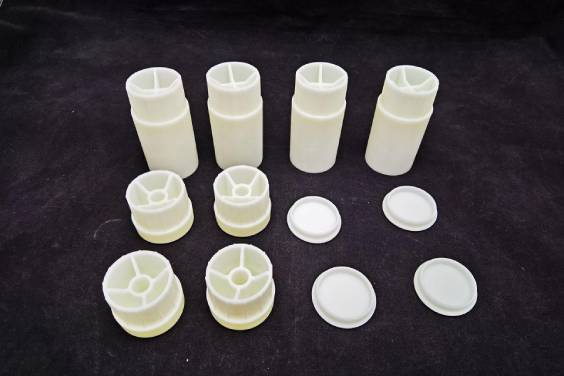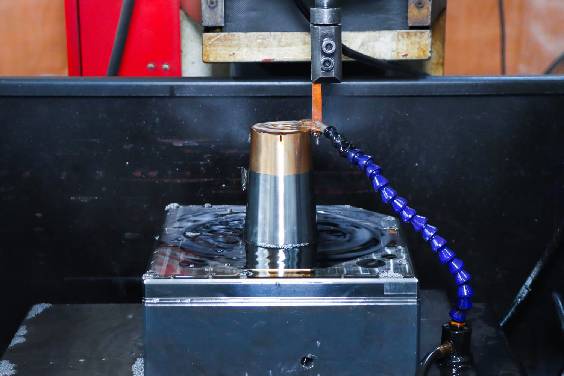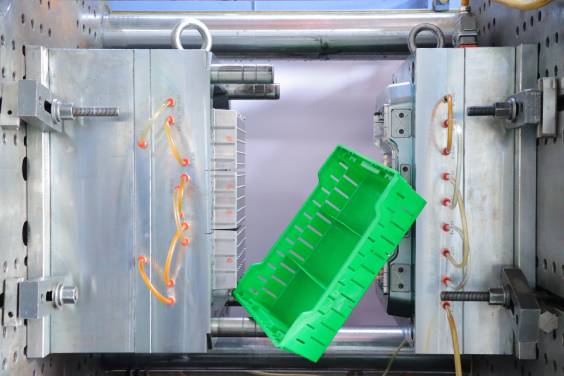How to Estimate Injection Molding Cost? The Complete Guide
- Home
- > Blog
- > How to Estimate Injection Molding Cost? The Complete Guide
Share :
Share :
Injection molding is a crucial process employed in plastic manufacturing. This process is ideal for the mass production of identical components that require tight tolerances. Injection molding is an economical and highly repeatable process that delivers premium-finish parts for extensive series production.
If you have recently ventured into the plastic manufacturing industry, you probably would be baffled by the cost estimation of injection molding. Typically, the mold cost is the factor that primarily influences the budget. Furthermore, the expenses of designing and creating a mold are influenced by the design complexity, desired production volume, material of the mold, and more.
A Guide to Estimate the Injection Molding Costs
While you can manufacture 3D printed molds at a low volume for less than $100, designing and building complex molds meant for bulk production can cross $100,000. However, the injection molding process features minimal variable expenses because of the economical thermoplastic materials, brief cycle periods, and greater automation.
Here are some tips that can help you estimate the injection molding costs for your workshop –
Mold Costs
Mold costs are the primary factor influencing the overall cost of injection molding.
Injection molds get created using the following three approaches:
1. CNC Machining
CNC machining involves CNC machines that manufacture stainless steel and aluminum molds with high precision. CNC machining produces molds for a highly complex cavity design but often requires frequent tool swaps, which spike costs. CNC machines also require skilled labor and a segregated workspace, causing most companies to outsource this task to service providers.
2. 3D Printing
3D printing can fabricate injection molds at high speeds without exceeding the budget. It requires limited equipment and no skilled labor or part changes, saving costs. Besides that, 3D printing aids the product development department by letting them iterate on the design and test the end-use component before greenlighting it for mass production.
3. Electrical Discharge Machining
The EDM approach delivers unusually complicated mold designs that standard machining approaches cannot manufacture. EDM uses a tool and a workpiece electrode to build mold shapes. EDM is remarkably accurate and requires no post-processing. Like CNC machining, the process of EDM can get outsourced to machine shops.
Equipment Costs
Injection molding requires special machines that range from smaller desktop machines used by local businesses that undergo in-house production to large industrial machines typically operated by contract manufacturers, service providers, and large-scale manufacturers.
If your company produces low volumes of parts, it is advisable to do so with a smaller desktop injection molding machine and 3D printed molds. If you have just entered the domain of injection molding and are on a budget, use a Bridgeport mill. Low-scale production machines get the job done with commendable accuracy and limited investment.
However, if you run a large-scale injection molding company, you must opt for industrial injection molding machines ranging from $50,000 to $200,000+. Such machinery requires stringent facility conditions and a skilled workforce for operation, monitoring, and maintenance.
Unless injection molding is your company’s core competence, it is advisable to outsource mass production to contract manufacturers and service providers since the equipment costs get included in the service costs.
Injected Material Costs
Injection molding can be done using several types of plastics. The final selection choice depends on the specifications of the desired components, such as PS, ABS, PE, PP, PC, and more.
The cost of materials used for molds varies based on the preferred material. For instance, thermoplastic pellets can cost as low as $1 and reach up to $5 per kg.
Material costs are typically influenced by the design of the model, the chosen material, and the volume used to carry out the process of injection molding.
Labor Costs
The machinery used for injection molding requires minimum human intervention and is operated using automation. CNC machines, 3D printers, and EDM machines run based on the CAD file design specifications to create a mold. Automation is also used in injection molding machines for injecting materials. Industrial grade IM machines cool and release the final part autonomously.
While automation dominates the landscape, the injection molding industry also requires labor in the form of –
- Setup Costs: The labor used to set up the machine charges you based on the time required for equipment configuration that produces the final part using the mold.
- Monitoring Costs: While automation does most of the job, you would still require equipment operators to oversee the injection molding's progression. Operator wages summed throughout the process get included in the final injection molding costs.
- Maintenance Costs: Repair and maintenance costs involve replacing defective parts and using tools to carry out the maintenance process. It also includes swapping out worn or damaged parts.
If the production takes place within the facility, the charges get added to the final labor costs, but if the company outsources it, the labor costs and service provider’s markup get included in the service costs.
Final Words
Before you kick-start the manufacturing process, estimate the cost of injection molding and pen down any miscellaneous expenditures. Smaller, non-complex components are cheaper to produce than those with complex geometry because the mold material raises the cost of injection molding.
It is also crucial that you review your part designs thoroughly, whether it is before running a sheet metal fabrication project, planning 3D printing, ordering CNC machining, or opting for mass production.
About the Author:
Peter Jacobs
Peter Jacobs is the Senior Director of Marketing at CNC Masters. He is actively involved in manufacturing processes and regularly contributes his insights to various blogs on CNC machining, 3D printing, rapid tooling, injection molding, metal casting, and manufacturing in general.





